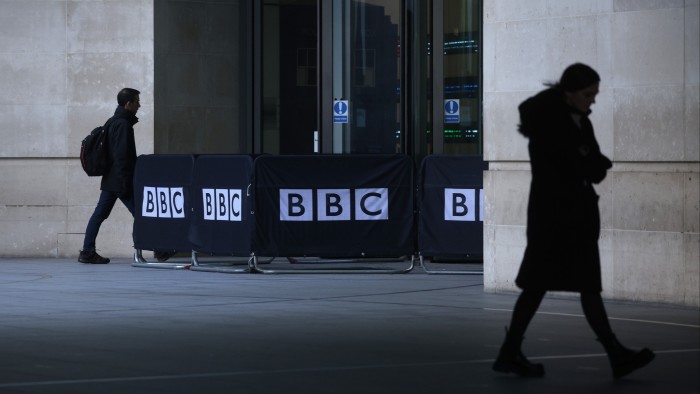Stay informed with free updates
Simply sign up to the Media myFT Digest — delivered directly to your inbox.
The BBC is threatening legal action against artificial intelligence search engine Perplexity, in its first effort to clamp down on tech groups scraping its vast troves of content to develop the cutting-edge technology.
In a letter to Perplexity chief Aravind Srinivas seen by the Financial Times, the British national broadcaster says it has evidence that the US start-up’s “default AI model” was “trained using BBC content”.
The letter states it could seek an injunction unless the San Francisco-based company ceases scraping all BBC content, deletes any copies of the broadcaster’s material held for the purposes of developing its AI systems, and provides “a proposal for financial compensation” for the alleged infringement of its intellectual property so far.
The move is the first time that the British broadcaster has sought to tackle AI companies over this matter, and reflects growing concerns that its content — much of which is freely and easily available as a public sector broadcaster — is being widely ripped off.
Perplexity said the BBC’s claims were “manipulative and opportunistic” and that it had “a fundamental misunderstanding of technology, the internet and intellectual property law.
“[The claims] also show how far the BBC is willing to go to preserve Google‘s illegal monopoly for its own self-interest,” the company added.
Perplexity does not build or train foundation models, but provides an interface that allows users to choose between others made by groups including OpenAI, Google and Anthropic.
Its in-house model is created from Meta’s Llama and refined to improve accuracy and reduce hallucinations, where models generate false information, a person close to the company said.
The BBC is publicly funded in the UK, which means that striking potential licensing deals with AI groups could be a valuable source of income at a time when it is under pressure to cut costs while it negotiates its overall funding in a 10-year charter renewal process.
The broadcaster has held talks with Big Tech groups, including Amazon, about allowing its content to be used to train AI models, according to people with knowledge of the talks.
Perplexity, which counts Amazon founder and Washington Post owner Jeff Bezos among its investors, is currently finalising a funding round that would value the start-up at $14bn — a $5bn jump from the valuation it secured six months ago.
Perplexity has more than 30mn users, mostly based in the US. Its primary source of revenue is from subscriptions.
The BBC said that parts of its content had been reproduced verbatim by Perplexity, and that links to the BBC website have appeared in search results including content that has only recently been made available online.
“Perplexity’s tool directly competes with the BBC’s own services, circumventing the need for users to access those services,” it said.
The broadcaster’s executives are particularly concerned that AI companies are misusing its content, which they claim could damage its reputation for neutral and impartial journalism.
According to its own research into the accuracy of several AI assistants in December last year, 17 per cent of Perplexity search responses “had significant issues with how they represented the BBC content used as a source . . . the most common problems were factual inaccuracies, sourcing and missing context”.
The letter said: “It is therefore highly damaging to the BBC, injuring the BBC’s reputation with audiences — including UK licence fee-payers who fund the BBC — and undermining their trust in the BBC.”
In October last year, the BBC began registering copyright in its news website with the US Copyright Office on a rolling basis, it said, and so is entitled to “statutory damages in relation to the unauthorised use of these copyright works”.
Perplexity is already engaged in a legal battle with News Corp’s subsidiaries Dow Jones, the New York Post and the Wall Street Journal. It has also previously received cease and desist letters from other outlets including the New York Times and Condé Nast.
However, it has introduced revenue-sharing agreements with publishers including Time, Fortune and Der Spiegel, which will compensate news organisations that are signed up when their publication is referenced in an answer by the chatbot.




